

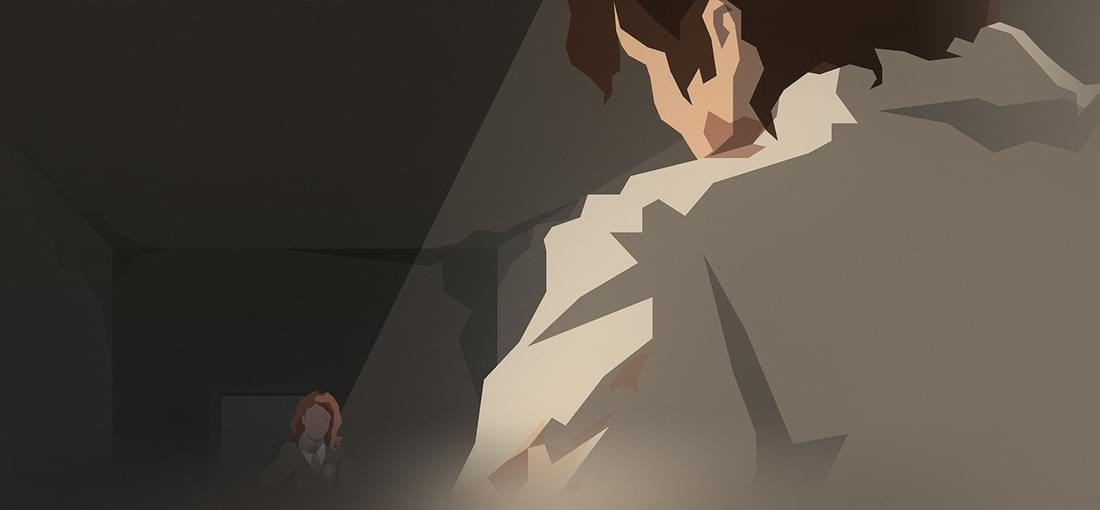
If you loved the first This is the Police released back in 2016, you'll love this. If you didn't, there's still nothing for you here. The sequel expands on many of the original's concepts but has learned very little in the way of fixing its problems. Personally, I can't get enough. High points include the story, the music, and a squad-based tactics portion that rewards players for taking criminals into custody rather than turning them into Swiss cheese.
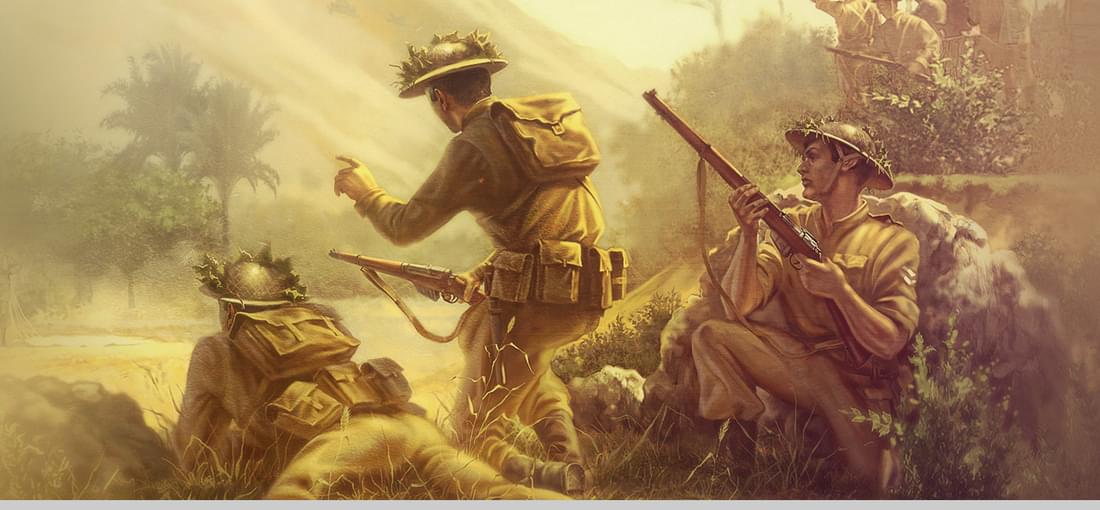
The Men of War campaign offers a level of interactive depth that is rare to find, with each mission likely taking hours to complete if you count replays. I recommend turning the speed down for a more comfortable experience because being asked to not only set up positions but make sure each individual unit is well-equipped can quickly become overwhelming. The game is as much about logistics as it is about blowing stuff up, which means scavenging enemy equipment, organizing squads to stack ammunition into trucks, and running trucks between your lines to supply ammo-starved troops. If such detailed micromanaging sounds dull, it’s actually really intense, especially during defence missions. Heroism is born from desperation, and it doesn’t get any more desperate when a fresh wave of enemy tanks comes crashing against your isolated squad who are down to their pistols!
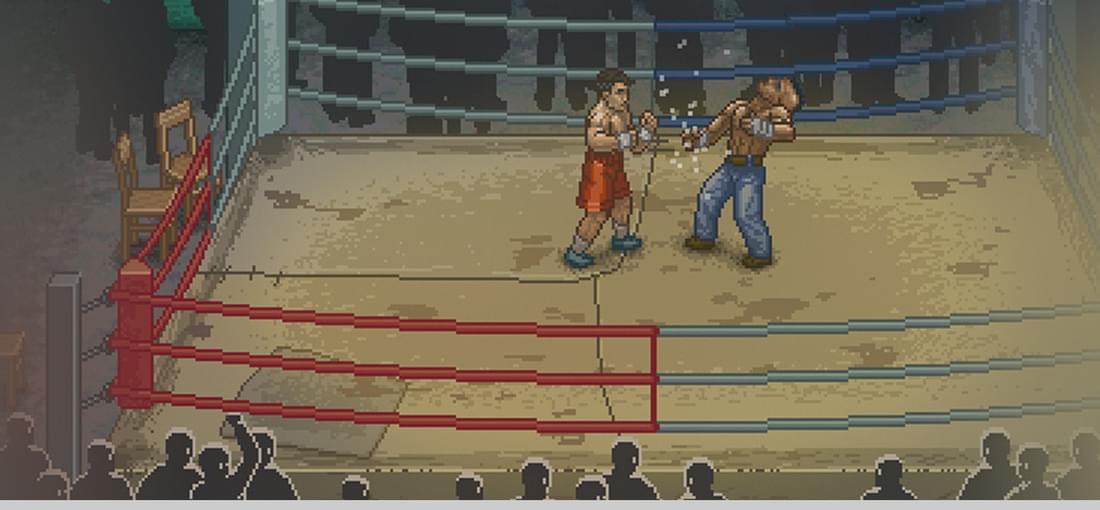
I feel a little bad for saying this because there’s a lot of love poured into Punch Club and its countless 80s and 90s fighting references, but the passion far outstrips the execution. The key selling point of the game, managing fights, requires virtually no player involvement. Looking at the skill trees it seemed like things might open up later, but the truth is even by the end game you might as well not even be there for the fight’s duration aside from clicking the ‘next round’ button. The result is basically predetermined by attributes trained beforehand, and you will not be called upon to swap out skills or adapt to your opponent. By the second half the game completely breaks down and abandons the one thing it had going for it – questing and map travel. All daily requirements are relocated to a single area (hope you didn’t take the walking skill bonus) and there are no more of the fun zany quests that littered the first half. The way the plot is executed lacks a basic understanding of storytelling, jumping into the middle or end of a character arc without starting it first. It’s difficult to say anything more without venturing into spoiler territory. Rest assured, the ending is likely to leave you baffled.
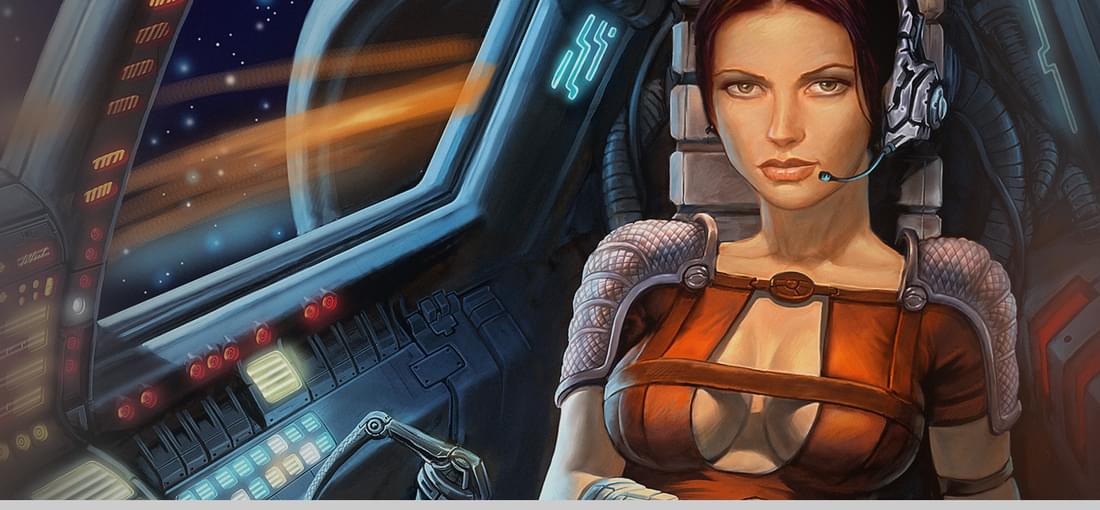
I have no trouble recommending this if you’re looking for a group combat RPG with spacebar pausing and are in a Sci-fi mood. The game puts you in the role of a mercenary group and follows a set story in a similar vein to Warhammer (Horned Rat and Dark Omen), in that you can pick from multiple missions. The combat aspect is alright in my opinion, but there are many complaints which stem from a lack of understanding about it - one being that your team doesn’t do what you tell them to do. That’s partially true thanks to various AI parameters. If a party member has a bogey on their tail, they may be more concerned with that than with your order to move somewhere. Orders are general, not iron clad. There’s an ability which negates this in the levelling system. At lower levels, the manoeuvrability of your pilots is awful and sometimes creates a looping fight where they keep failing to get into a position for a basic shot. Stick with it though, things improve significantly as those experience points go up. Many of the missions have optional objectives, and sometimes you’ll be let loose in a system to pick up a few side quests at your leisure. Once the mission is accomplished, it’s off to the shops to spend the loot and kit out your ships, pick a new skill from the levelling tree, and select a new mission. There’s over 30 of em, spanning patrol runs to huge battles so there’s plenty of content.
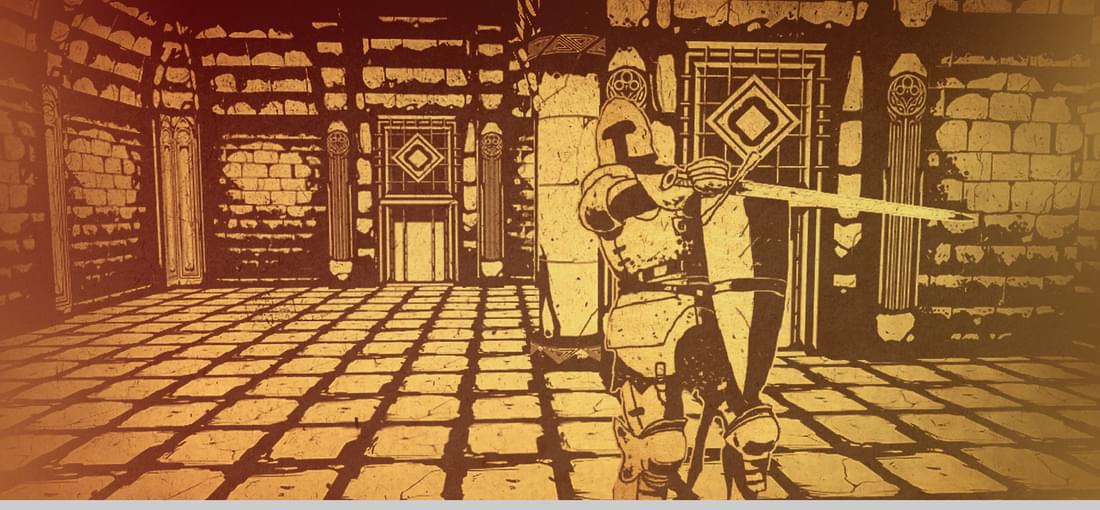
Paper Sorcerer sure has strange music. The dungeon roaming is accompanied by a tune that wouldn't be out of place in Faster Than Light, and browsing shops sounds like I'm back in Final Fantasy 8’s Deling city. I don’t find it particularly unpleasant or distracting (aside from desperately trying to pin down what they sound like) which is more than I can say for the interface. Moving things around in the inventory isn't convenient and the turn-based combat is too slow and awkward. But despite those things it’s quite an interesting game. Firstly you’re an evil wizard trapped in a book by a king, hence the surroundings and title (I guess Parchment Sorcerer didn't have the same ring to it). You’ll have to find a way to escape and fight your way through corridors and rooms patrolled by the king’s guards. For your party you get to pick from a nice list of monsters which function in different roles. Vampire, goblin, skeleton, demon, etc. In combat these monsters leap out from the first-person perspective and bash enemies. It can get quite reminiscent of the Sega Saturn’s excellent Shining The Holy Ark. It’s always nice to see a good Kickstarter game come out. These days dungeon crawlers are a rare sight, though we've had a small comeback with Legend of Grimrock which was very traditional. Paper Sorcerer feels more like a continuation of the genre rather than a nostalgic callback, and I’d recommend both any time. Why not? They’re so cheap!
Consortium feels more like an intro to a destined classic rather than a complete experience. I'm a little disappointed only because everything before it was absolutely fantastic. The premise alone is solid gold. You’re a guy from the present, being uploaded via satellite into the mind of a starship security chief in an alternate reality of future earth. You wake up to somewhat of a crisis and right away are forced to interact with the crew while trying not to raise suspicion, gaining positive or negative reputation with the various personalities. I've played through thrice to test the game’s limits and have enjoyed the significant number of deviations within the short 3-4 hour runtime. An entire chain of events can change depending on your actions, picking another option on the dialogue tree can open up intriguing possibilities, even small actions often incite some subtle reaction that just makes me say to Consortium ‘Now you’re just showing off.’ Adding to this are eerie disruptions of ship’s systems and glitches (not real bugs this time) that fill comms with insane gibberish only you can hear. I suppose all I can say is I’m very interested in where they’re going with the concept and eagerly await the next part, but I’ll wait for a sale and try to savour every moment because it’ll be over fast. Insert bedroom joke here.
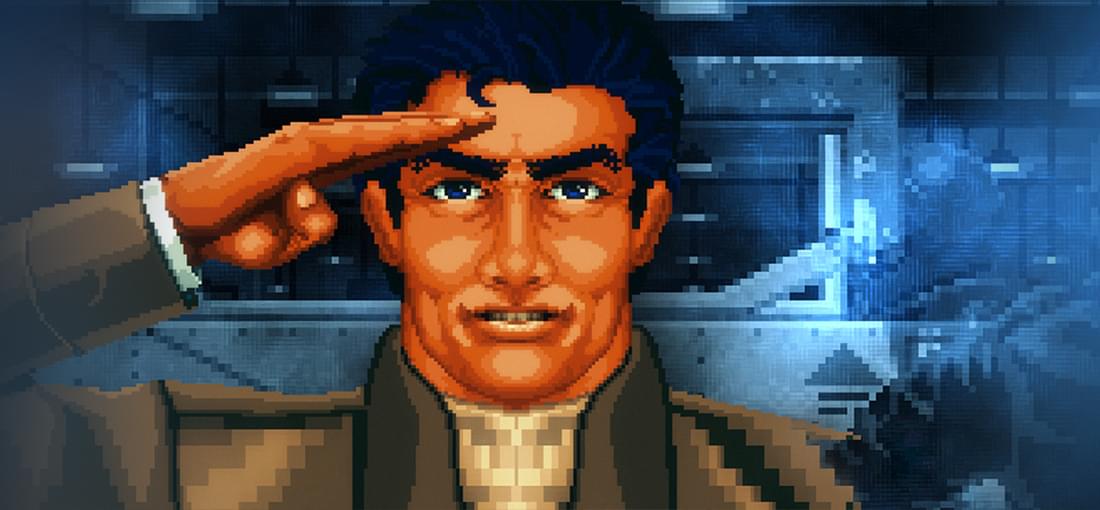
Wing Commander dazzled me with its cinematic presentation that told the story of an epic galactic war, but this was back in 1990 when a story was seldom expected in the genre, let alone videogames. What can Wing Commander 1 & 2 offer you today that modern games can’t? Quite a lot as it turns out. For starters there’s the wingmen themselves - rookies out to make a name for themselves, old veterans past their prime, pessimists, and stone cold killers populate the carrier you’re assigned to, offering advice and dropping lore on a war that has been raging for decades with no end in sight. Then there’s the multiple path mission tree. If you don’t perish, the game continues regardless of the outcome. Victories earn you medals, ranks, favourable reassignments and the admiration of your peers. Defeats via ejecting or fleeing will earn you undesirable reassignments, a scolding from your commanding officer, and a new set of missions that make the campaign that much harder to win. The actual gameplay itself isn’t anything to brag about compared to other space shooters, but if you’re not a gameplay purist and love the concepts and ideas behind the games almost as much as how it plays, this is definitely your bag.